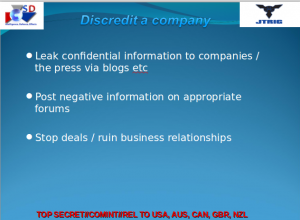https://www.youtube.com/watch?v=mD5phTXGN_0
(NB: post by Mandos.)
Recent events suggest that, whatever they may have originally thought, the Trump administration is in the process of being pulled back into the overall historical attractor of US policy regarding Russia. The Russian establishment had made no secret of its preference for Trump and its belief that Trump was a person with which they could deal on a more even footing, a politician in a mold they understood, etc.
I’m not here to argue whether or not Trump (or Flynn) is some kind of Russian plant, an issue that seems to be occupying many others. I gather that conclusive evidence on this matter has yet to be produced and that it so far lies in the realm of (negative) wishful thinking. However, Russian policy-makers are already voicing disappointment that Russia-favorable entities in the Trump administration are increasingly weakened. The US state, particularly its intelligence community, are deeply set up for conflict with Russia, for better or for worse, and it turns out that the White House is only part of a large infrastructure, and any fantasies of an election resulting in a vast purge and house-cleaning were just that: fantasies. The intelligence community still believes to its core in the necessity of containing Russia.
However, one thing that is different now is the position of Western social liberals. Unfortunately, Russia had decided to back in spirit, if not always materially, movements that are identified with various strains of nationalist conservatism that are hostile to the goals and beliefs of social liberals. This is not only in the USA, but especially so in Europe, with the on-going rise of the Le Pens, the Wilders, and other groups in the world. Once upon a time, social liberal groups were principally parochial movements which were relatively indifferent on foreign policy questions regarding Russia, and to a very large extent also overlapped with anti-war movements — and so were once at odds with the intelligence community.
However, the apparent desire of Russia to return to a world of ordinary nation-state politics, and therefore its willing appearance (at minimum) of siding with conservative nationalist movements, have led to many social liberals now viewing Russia as mortal threat to their projects, and therefore, having a plausible motive to try to subvert political movements like that of Trumpism to their aims. In this situation, social liberals (or “identity politics” movements, or whatever you want to call them) will quite rationally stake out a position that the devil you know (American intelligence forces) are better than the devil you don’t (Vladimir Putin). This is not helped by the appearance of things like Russia loosening its laws on domestic violence.
While social liberals have not lately been winning elections on their platforms (most notably, in the USA due to the Electoral College structure), it would be a mistake to assume that these groups have no power whatsoever. In fact, they have broad and deep bases of popular support (merely electorally inefficient), and those bases are being pushed into the arms of forces hostile to Russian interests. The combination of Cold War-style intelligence community conservatism with popular social liberalism is one that is likely to lead to an even more hostile neo-Cold War posture on the part of the Western establishment in the medium-term, unless in the short term Trumpism can generate the political competence required to coerce the establishment in the other direction.
For its part, Russia has been attempting to play, in the “further abroad”, a soft power role given that its other options are not effective. It is attempting to play the part of a rival global hegemon without actually being a hegemon. It does not currently have the cultural or technological reach to do so. While it operates a technologically advanced, developed economy, it is still highly dependent on natural resource development and export. That means that the risks accruing from a strategy of using cultural divisions in the currently hegemonic Western social order are high: should social liberals gain the upper hand due to the inability of nationalist populism to operate the levers of state effectively, they will be confirmed in a resolve for further containment and suppression of a Russia that took sides against them.


